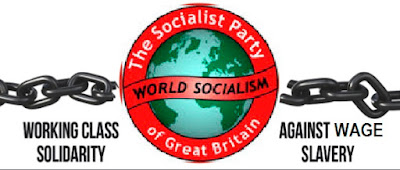The World Socialist Movement is loath to draw up blueprints of the future. It would be undemocratic for a handful of us now without access to the exact details of available resources and conditions to try and draw up rigid plans. We also recognise that there may not be one single way of doing things, and precise details and ways of doing things might vary from one part of the world to another, even between neighbouring communities. Of course, we can reach logical conclusions based on basic premises and can outline broad principles or options that could be applied. That is, we do not have to draw up a detailed plan for socialism, but broadly demonstrate that it is possible.
The working class will be able to make use of some of the existing institutions of capitalism in order to indicate the democratic decision to set up socialism. The WSM urges workers to elect socialist delegates in local and national elections, not simply as a propaganda exercise, but in order to gain democratic control over the machinery of the state. The growth of the desire for socialism can practically and effectively be demonstrated via the ballot box. In most capitalist countries this “democratic machinery” does exist, at least in constitutional theory. What is lacking is a working class which has decided to use constitutional democracy for the purpose of creating socialism. Where democratic facilities do not exist, it is the message of the WSM is that workers must combine their struggles for such rights with a political struggle for socialism.
What distinguishes the World Socialist Movement is that when we talk of common ownership we do not just include the means of production, but also, specifically, call for the common and democratic control of the means of distribution. Equal access to the common store without the requirement of exchange or payment is one of the things we consider to be the hallmark of genuine socialism. How would common ownership and democratic control work in practice? Without a price mechanism, some critics do not understand how signals can pass from the user to the producer or how decisions about production can be made. Yet such non-market systems already exist even within capitalism and a study of these can give useful insights into the practical operation of a socialist production and distribution system.
Socialism will have a number of advantages.
Firstly, the really great difference will be that instead of functioning in a dehumanised way as objects of exploitation within the wages system generating profit and capital accumulation for their exploiters, people will be freely cooperating with each other to do what was necessary for the community. The whole method of organisation would be through democratic control. People will decide what must be done and they will be free to get on with it solely for the benefit of everyone.
Secondly, socialism will remove vast amounts of waste. That capitalism is a society of fantastic waste was put very well by Marx:
“The capitalist mode of production, while on the one hand enforcing economy in each individual business, begets by its anarchical system of competition, the most outrageous squandering of labour power and of the social means of production. not to mention the creation of a vast number of employments, at present indispensable. but in themselves superfluous.” (Capital,Volume I. chapter 17. section 4).
The precise amount of labour that would become available for useful production in socialism is very difficult to judge but, at a rough estimate, it is likely that socialism could double the number of people available for this. The waste in terms of mining, manufacture, transport and energy supply that goes into the war machine and to servicing activities like insurance, finance and banking could be diverted into useful production, reducing the amount by which total production would need to be increased.
A third important advantage that socialism would enjoy would be the freedom to select and use production methods strictly on their merits. It would not matter that a desirable method might use more labour than an undesirable one. The selection and use of production methods will be free to take into account a broad range of needs, including the enjoyment of work itself, care of the environment, conservation of materials, social safety and animal welfare.
The fourth advantage that socialism would enjoy is that it will be free to use the planet as a single productive unit. This will follow from the establishment of a common interest amongst all peoples, and it will tend to make for a safer and more rational use of the Earth’s resources.
The socialist goal is a steady-state system, a society of zero growth with a fixed structure of means of production producing stable levels of goods for stable numbers of people; a conservation society which could work with a minimum loss of natural materials through things like recycling: a society where, because people will live in cooperation with each other, they will also be able to work in cooperation and harmony with the natural systems of the planet, and where the focus of social life will be mainly with the local community.



No comments:
Post a Comment